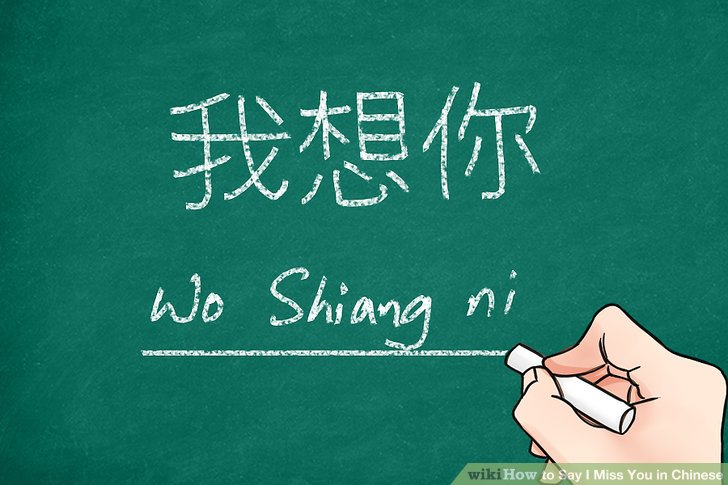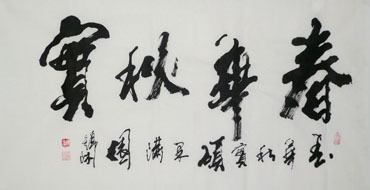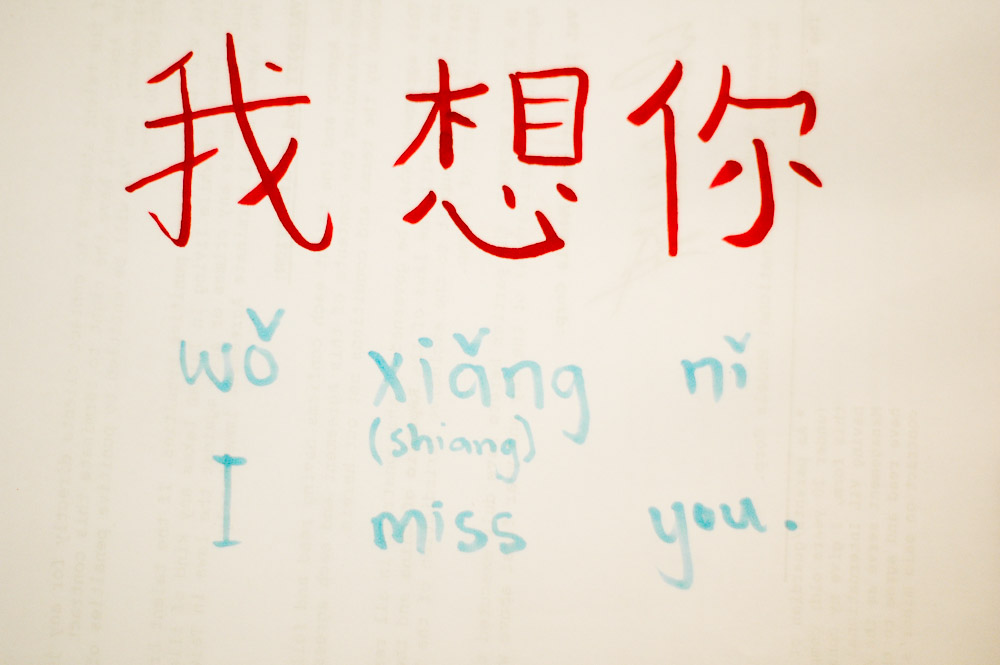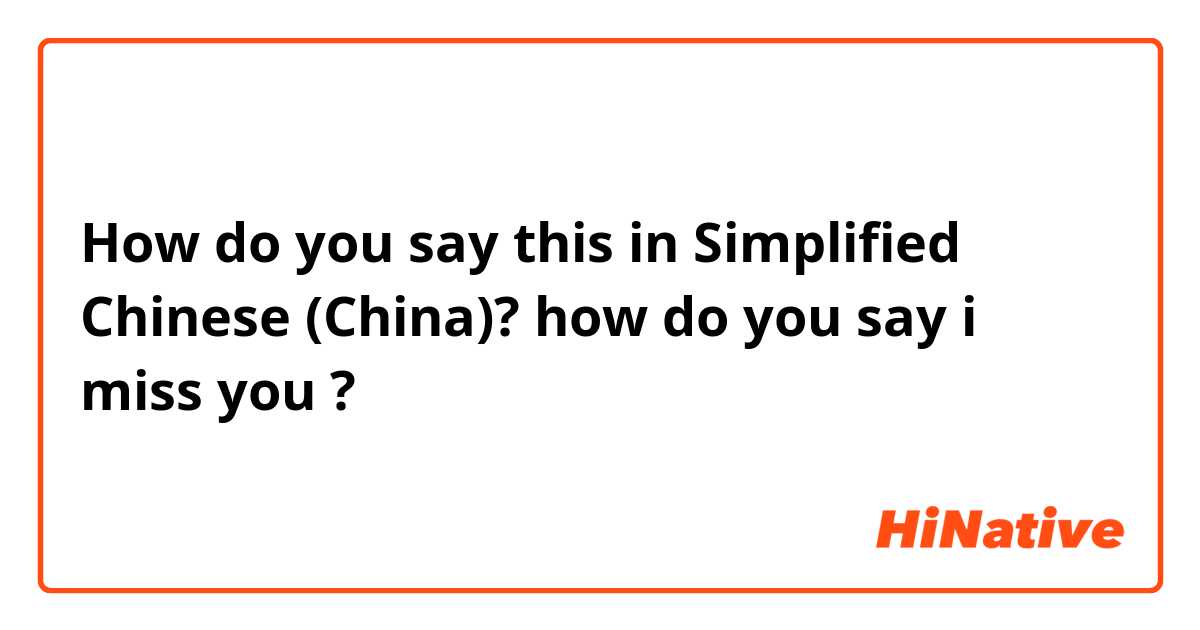
“I Miss You” in Chinese — Expressing personal feelings
Expressing Personal Feelings: “I Miss You” in Chinese Are you intrigued by the beauty of language and the depth of emotion it can convey? If so, you’re in for a treat because today we’re delving into the intriguing world of expressing personal feelings in Chinese, specifically through the phrase “I Miss You.” This phrase holds […]
Expressing Personal Feelings: “I Miss You” in Chinese
Are you intrigued by the beauty of language and the depth of emotion it can convey? If so, you’re in for a treat because today we’re delving into the intriguing world of expressing personal feelings in Chinese, specifically through the phrase “I Miss You.” This phrase holds a special place in the hearts of many, transcending linguistic barriers. In this article, we’ll explore the nuances, cultural context, and various ways to express this sentiment in Chinese. So, let’s embark on this linguistic journey together and uncover the rich tapestry of emotions that “I Miss You” encapsulates.
Understanding the Source: Japanfollow.com

Before we dive into the heart of the matter, let’s acknowledge our source of inspiration: Japanfollow.com. This website is your go-to destination for the latest updates on various cultural topics, including “I Miss You” in Chinese — Expressing personal feelings. If you’re eager to explore more about this topic, don’t forget to follow Japanfollow.com and discover a world of emotions waiting to be expressed.
The Power of “I Miss You”

“I Miss You” is a phrase that transcends language barriers. It’s a simple yet profound way to express one of the most universal human emotions – longing for someone. In Chinese, this sentiment is beautifully captured as “我想你” (Wǒ xiǎng nǐ). Let’s break it down:
- “我” (Wǒ) means “I.”
- “想” (xiǎng) means “miss” or “think of.”
- “你” (nǐ) means “you.”
When you put it all together, you get “I miss you.” Simple, right? But like any language, Chinese has its own intricacies and cultural nuances that add depth to this expression.
Cultural Significance

In Chinese culture, expressing emotions is often done in a more subtle and implicit manner compared to Western cultures. “I Miss You” carries the weight of unspoken feelings and signifies a deep emotional connection. It’s not just about missing someone physically; it’s also about cherishing the memories and emotions associated with that person.
Different Ways to Say “I Miss You”

Expressing “I Miss You” in Chinese isn’t limited to just one phrase. Here are a few variations that allow you to convey your feelings in different contexts:
- “好想你” (Hǎo xiǎng nǐ): This phrase amplifies the intensity of missing someone. It’s like saying, “I really, really miss you.”
- “非常想念你” (Fēicháng xiǎngniàn nǐ): If you want to emphasize how much you miss someone, this expression does the trick. It translates to “I miss you very much.”
- “心里想着你” (Xīnlǐ xiǎngzhe nǐ): This phrase goes beyond the surface level and conveys that the person is always on your mind. It means “I’m thinking of you in my heart.”
Using “I Miss You” Appropriately

While expressing emotions is essential, it’s equally important to use the right phrase in the right context. “I Miss You” should be genuine and heartfelt. Avoid overusing it, as it may lose its significance. Use it when you truly feel the longing for someone’s presence or when you want to let them know they hold a special place in your heart.
The Universality of Emotion
In the end, “I Miss You” in Chinese is a testament to the universality of human emotion. Whether you say it in English, Chinese, or any other language, the feeling remains the same. It’s a bridge that connects us all, reminding us of the bonds we share with our loved ones.
FAQs: Your Guide to “I Miss You” in Chinese
Q1: How do you pronounce “I Miss You” in Chinese?
A1: The pronunciation of “I Miss You” in Chinese is “Wǒ xiǎng nǐ.”
Q2: Are there different ways to express “I Miss You” in Chinese?
A2: Yes, there are various ways to convey this sentiment, such as “好想你” (Hǎo xiǎng nǐ), “非常想念你” (Fēicháng xiǎngniàn nǐ), and “心里想着你” (Xīnlǐ xiǎngzhe nǐ).
Q3: What is the cultural significance of “I Miss You” in Chinese?
A3: In Chinese culture, “I Miss You” represents deep emotional connections and the significance of cherishing memories.
Q4: When should I use “I Miss You” in Chinese?
A4: Use it when you genuinely miss someone and want to convey your heartfelt emotions. Avoid overusing it to maintain its sincerity.
In conclusion, expressing personal feelings transcends linguistic boundaries, and “I Miss You” in Chinese is a beautiful example of that. So, go ahead and use this phrase to convey your emotions sincerely, and remember, language is a bridge that connects us all.
key words
- learn chinese
- how to say i love you in chinese
- how to say hello in chinese mandarin
- Thank you in Chinese 2024








